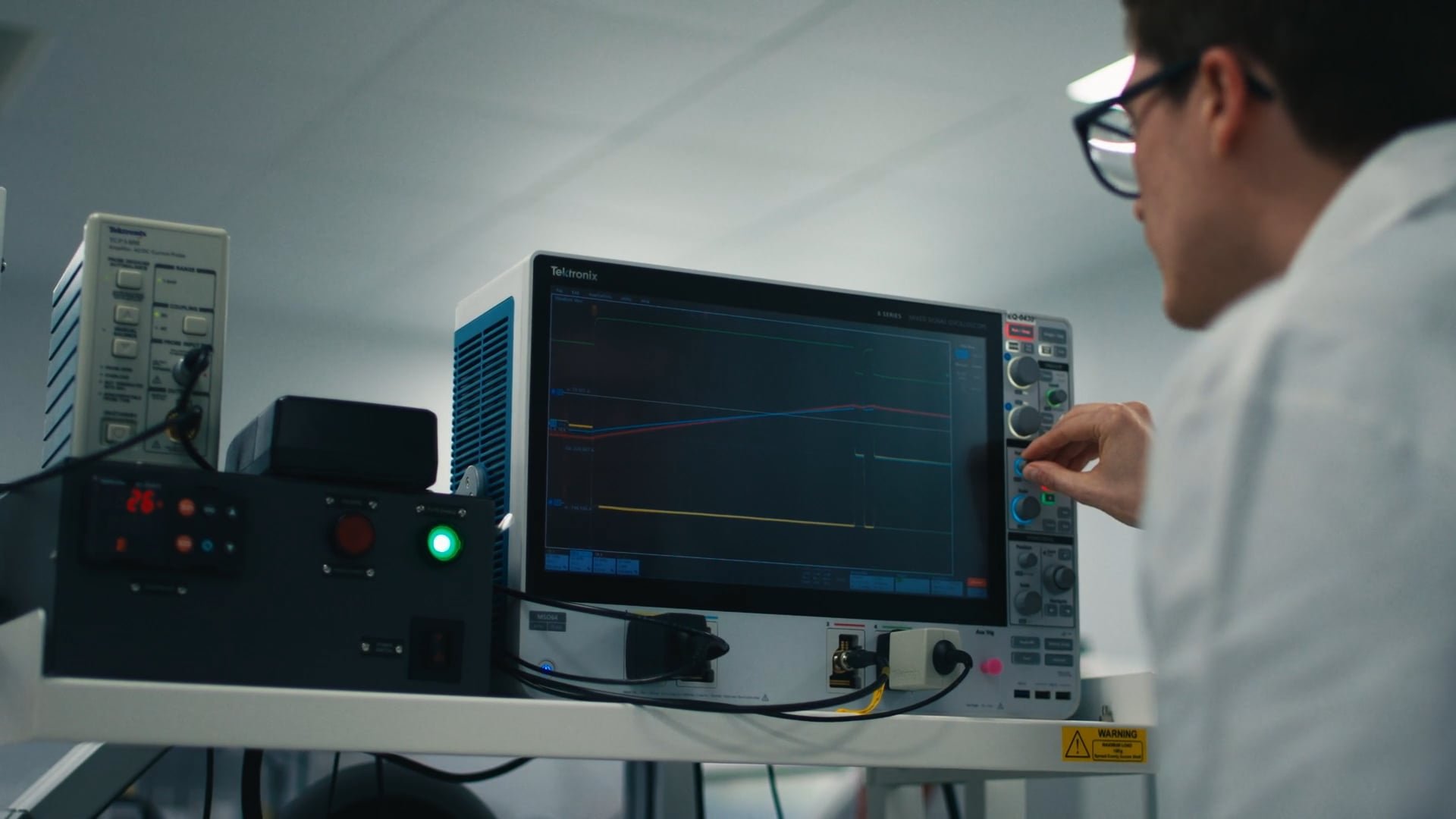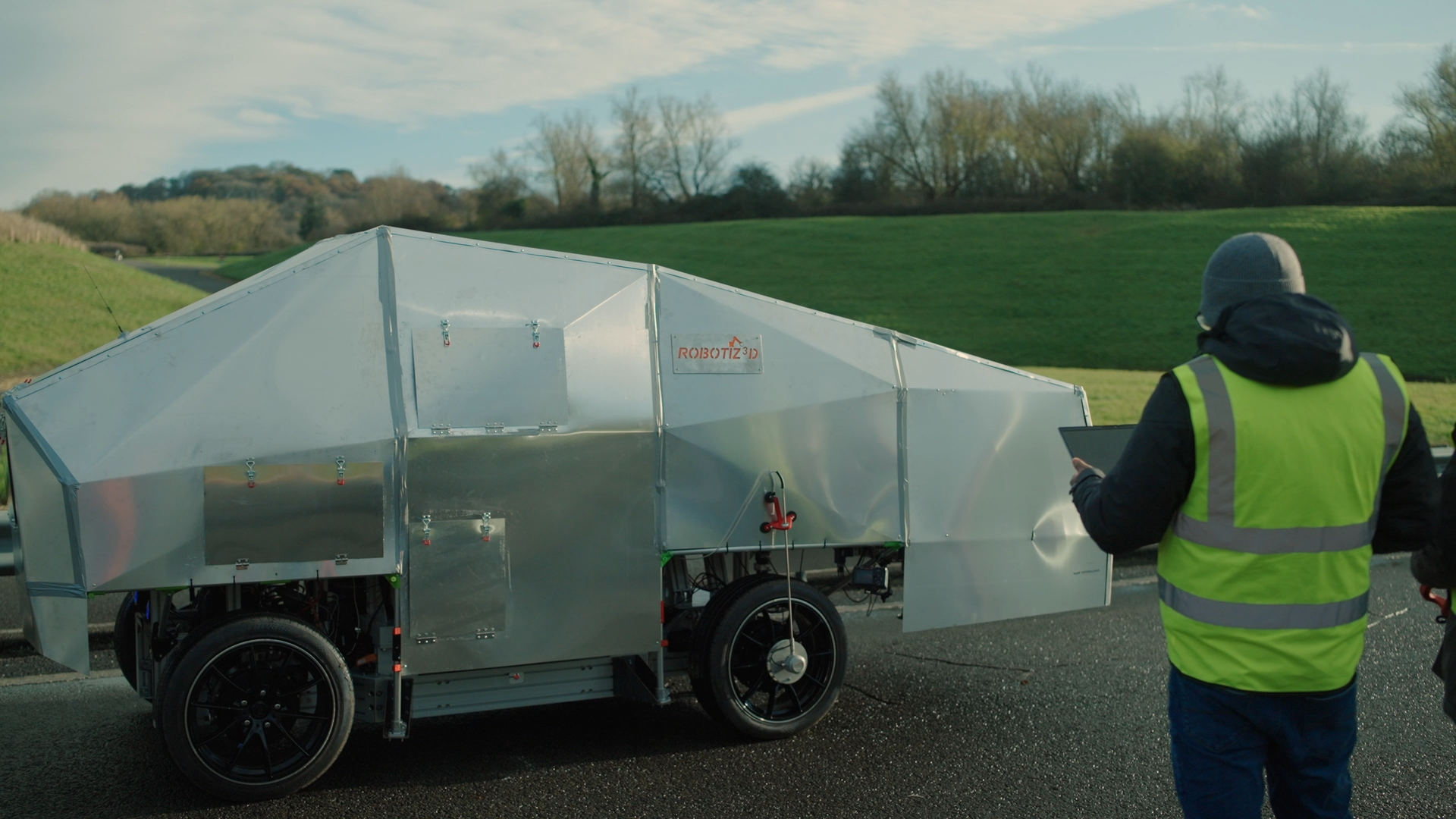
Meet the Team: Chris
Everyone knows Chris as director and co-founder of S&B, but did you know he also has a PhD and a degree in Chemistry?
We had a chat about science, tech, and the stories behind it all.
So you’re Director of S&B, but not everyone knows about your scientific background, can you tell us a bit more about that?
CK: When I finished my Chemistry degree I decided to do a PhD because I wanted to do something really difficult. The problem I had in chemistry is that I wasn’t particularly good at making things, I wasn’t a good practical chemist, but I did like the theory around shapes and geometries and patterns.
This lead me to molecular mechanics, which predicts the shape that a molecule will take given a certain bunch of parameters by running them through a computer model. My PhD involved adding in transition metals which behave very differently from the elements that traditional molecular mechanics was able to cope with, so I spent a lot of time writing computer programmes to do that, which really pushed my interest in geometry and patterns, and also of course computer programming.
This knowledge of computing has continued to be of use to me - fast forward a few years to when we had our first editing computer, all of that understanding came in useful because we used to take it apart and fix it or change a graphics card every few weeks!
How does this background in chemistry apply to the projects you’re involved in at S&B?
CK: Over the years at S&B we’ve interviewed dozens of different academics working on projects within technology, engineering and science, for clients including UKRI, Zenzic, Jisc, and many Universities. Being involved in that world of research and academia just means that you acquire so much varied knowledge. It’s so interesting talking somebody who is developing a new sensor on a car to allow it to have more accurate satellite positioning, for example, or a chemical engineer who’s developing a process to make a palm oil substitute in a lab rather than growing it in Brazil.
I’m by no means an expert in any of these fields but often I find that I’ve had enough conversations with enough people in that area of expertise to have what I hope is a reasonably intelligent conversation about the work that they do.
Are there times when this accumulated knowledge has been useful?
CK: We’re doing a lot of work at the moment within the area of connected and automotive tech, such as the cybersecurity in connected and autonomous vehicles (CAVs) - we have created video content for SecureCAV and Autocheri, which are two key projects in this area.
Modern vehicles are now becoming so high tech - the average car contains at least 250 chips which are all communicating with one another as well as the outside world. The trouble with becoming more connected is that cars now have a hugely expanded attack surface, and if you include over the air updates then a malicious hacker could access a car in the same way a computer could be hacked from anywhere in the world. Autocheri and SecureCAV are developing ways of making the automotive world safer and more secure.
Another client we work with in this sector is Zenzic, which is an organisation that supports and accelerates SME’s who are innovating the CAV sector, giving them access to funding and testbeds. Creating video content about the CAM Scale-Up UK programme gave us the pleasure of being introduced to four more companies who are developing innovative solutions within the world of autonomous vehicles, adding to the rich ecosystem that is growing in the UK.
These included Robotiz3d, who are developing an autonomous robot which is capable of detecting and repairing potholes, and Megasets, who generate synthetic computer data which helps to build more diverse virtual environments for autonomous vehicle testing and model training.
Although this is quite a broad spectrum of different technologies, what I love is getting to the heart of what’s different and what’s innovative about the work of each of these SME’s.
It’s unusual to have this level of knowledge about chemistry and engineering when working in film and video. Do you find that this helps the storytelling process?
CK: Generally these things all have a story to them. They all begin with a problem, and there’s a journey to reach the solution. The challenge is getting to the root of that narrative and telling it effectively to an audience.
I was always told that if you’re going to teach GCSE Maths, for example, you need to have done A-level or a degree, and if you wanted to teach A-level, you’d need a Degree or PhD, and so on. You’d probably require one or two levels of qualifications on from the level you’re teaching at.
When creating video or animated content about these technologies, it’s certainly beneficial to gain a reasonable sense of understanding so that we can condense it down in the most concise and logical way possible for the intended audience. When I’m filming people who are experts in their field, it helps to be able to go slightly further down that ‘geek route’ in terms of discussion before bringing it back to focus on the more general message. I like to think that we achieve this most of the time, although the work that Megasets do was definitely brain bending!
That makes sense. So it helps to have more of an understanding than necessary in order to convey the correct message in a more simple and digestible format. What would you say you enjoy most about working on these projects?
CK: The fascinating thing about working within the technology sector and capturing these stories is not only the tech, it’s also the people. I love to understand why and how these individuals found themselves doing the work that they do. It often stems from an anecdote or a desire to figure out how something works, or a curiosity around a specific subject.
I think that my own personal backstory and the fact that I took a slightly unconventional route into the filmmaking profession sparks conversation and encourages others to tell their stories. I do choose my moments of when to reveal my science background, but in scenarios where we are interviewing an academic who is not used to being on camera, it really helps to have something in common to talk about and make them feel more at ease.



